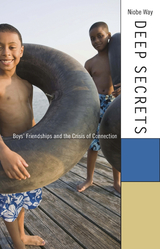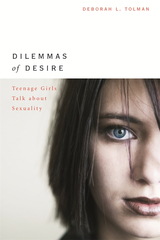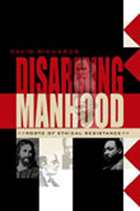3 start with D start with D

“Boys are emotionally illiterate and don’t want intimate friendships.” In this empirically grounded challenge to our stereotypes about boys and men, Niobe Way reveals the intense intimacy among teenage boys especially during early and middle adolescence. Boys not only share their deepest secrets and feelings with their closest male friends, they claim that without them they would go “wacko.” Yet as boys become men, they become distrustful, lose these friendships, and feel isolated and alone.
Drawing from hundreds of interviews conducted throughout adolescence with black, Latino, white, and Asian American boys, Deep Secrets reveals the ways in which we have been telling ourselves a false story about boys, friendships, and human nature. Boys’ descriptions of their male friendships sound more like “something out of Love Story than Lord of the Flies.” Yet in late adolescence, boys feel they have to “man up” by becoming stoic and independent. Vulnerable emotions and intimate friendships are for girls and gay men. “No homo” becomes their mantra.
These findings are alarming, given what we know about links between friendships and health, and even longevity. Rather than a “boy crisis,” Way argues that boys are experiencing a “crisis of connection” because they live in a culture where human needs and capacities are given a sex (female) and a sexuality (gay), and thus discouraged for those who are neither. Way argues that the solution lies with exposing the inaccuracies of our gender stereotypes and fostering these critical relationships and fundamental human skills.

Be sexy but not sexual. Don't be a prude but don't be a slut. These are the cultural messages that barrage teenage girls. In movies and magazines, in music and advice columns, girls are portrayed as the object or the victim of someone else's desire--but virtually never as someone with acceptable sexual feelings of her own. What teenage girls make of these contradictory messages, and what they make of their awakening sexuality--so distant from and yet so susceptible to cultural stereotypes--emerges for the first time in frank and complex fashion in Deborah Tolman's Dilemmas of Desire.
A unique look into the world of adolescent sexuality, this book offers an intimate and often disturbing, sometimes inspiring, picture of how teenage girls experience, understand, and respond to their sexual feelings, and of how society mediates, shapes, and distorts this experience. In extensive interviews, we listen as actual adolescent girls--both urban and suburban--speak candidly of their curiosity and confusion, their pleasure and disappointment, their fears, defiance, or capitulation in the face of a seemingly imperishable double standard that smiles upon burgeoning sexuality in boys yet frowns, even panics, at its equivalent in girls.
As a vivid evocation of girls negotiating some of the most vexing issues of adolescence, and as a thoughtful, richly informed examination of the dilemmas these girls face, this readable and revealing book begins the critical work of understanding the sexuality of young women in all its personal, social, and emotional significance.

READERS
Browse our collection.
PUBLISHERS
See BiblioVault's publisher services.
STUDENT SERVICES
Files for college accessibility offices.
UChicago Accessibility Resources
home | accessibility | search | about | contact us
BiblioVault ® 2001 - 2024
The University of Chicago Press









